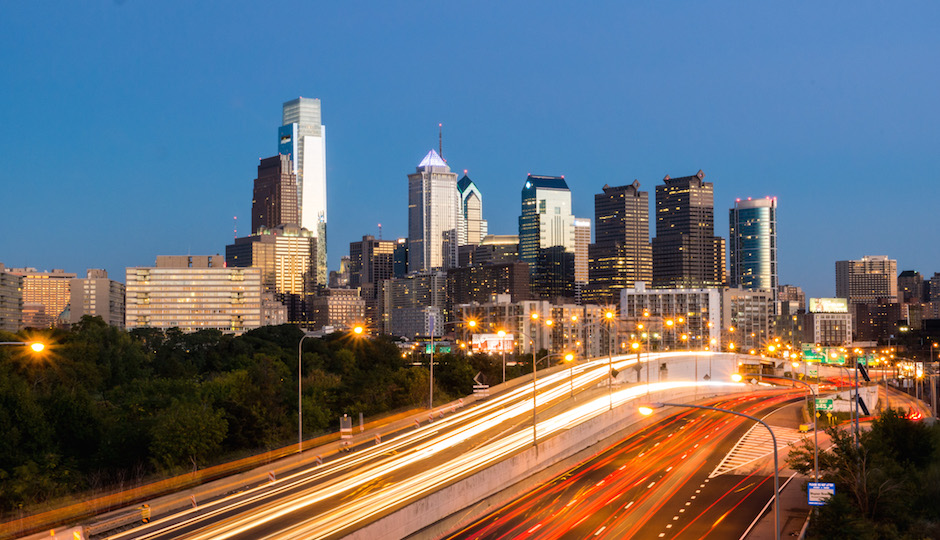Philadelphia’s Job Market Has a Bad Image Problem

Photo by els1124 via Flickr
The findings of a new report released this week from recruitment media company Nexxt won’t come as a surprise to anyone who lives and works in Philadelphia, but the research is a friendly nudge that the city still has work to do.
The King of Prussia-based company surveyed more than 600 job seekers in the region to get their thoughts on Greater Philadelphia’s job landscape. Among the study’s biggest findings is that Philly’s job market still has a glaring reputation problem (surprise!).
About 63 percent of those surveyed said they do not feel there are the same long-term career opportunities when compared to Boston, New York City, and Washington, D.C. Specifically, survey takers felt Philly has:
- Fewer opportunities in their specific job field (58 percent)
- More competition in their specific job field (63 percent)
- Fewer companies to work for (63 percent)
- Fewer exciting companies to work for (63 percent)
- Fewer opportunities for job seekers to learn and grow in their career field (56 percent)
With these findings, you have to ask, do they really reflect where Philly’s job market is or are they sadly just a reflection of misconceptions about the city? It’s a troublesome mix of both.
Joe Weinlick, senior vice president of marketing at Nexxt said of the study: “Philadelphia suffers from an image problem.”
“Despite the resurgent restaurant scene and attractive lifestyle, professionals still look with envy at the opportunities in nearby metropolitan areas,” he said. “Philly does have some great businesses, and added more than 46,000 new jobs over the course of last year, but we need to do a better job of promoting ourselves and opportunities right here.”
Campus Philly president Deborah Diamond told Philly Mag that it is clear Philly is “in growth mode, not mission accomplished mode.”
“I agree we need to invest way more in telling our stories to reveal to students all the great reasons to stay,” she said. It’s part of why Philly has organizations like Campus Philly.
“I don’t look at these report findings as grim,” said Diamond. “It’s just another indicator that we have more opportunities to promote the things that are working.”
So what’s working?
Nexxt’s report revealed that younger job seekers found the region’s affordability extremely appealing. Nearly 70 percent of respondents 35 years old or younger say the low cost of living in comparison to other cities like Boston, New York City, and Washington D.C. impacted their decision to work and live in the Philadelphia region. The same respondents would accept earning less to live in a smaller, more affordable city (60 percent), noting that the area’s competitive pay offerings are the second biggest benefit to working in Philadelphia.
And these results align with findings from a recent Campus Philly report that shows the job market is strong for recent college graduates. With Philly’s rate of job growth surpassing New York’s this year for the first time in a while and with the fastest rising millennial population of any big city, most college students surveyed reported feeling positive about first jobs after graduation in Philly.
For both Weinlick and Diamond, the discussion about cleaning up Philly’s job market image is even more pressing with the mad dash to hook Amazon’s HQ2.
“Of course, if Philadelphia can seriously compete and win the new Amazon headquarters, that would give us an immediate shot in the arm,” Weinlick said.
Indeed, others have argued that the region’s 102 colleges and universities are pumping out top students who would stay put if another tech giant like Amazon were to establish roots.
“Whether or not Amazon comes, we already had a pretty collaborative place, but the effort to create the proposal has only better positioned us to be ready to make the pitch to the next big company or overseas entity looking to set up in the U.S.,” Diamond said.
The city’s Department of Commerce says it recognizes the need for Philadelphia to establish a clear identity and shared messaging about the city for the purposes of business and talent attraction. This summer, representatives from PIDC, Select Greater Philadelphia, Center City District, University City District, Visit Philadelphia, and the Philadelphia Convention & Visitors Bureau came together to hold focus groups with constituents across sectors like tech, higher ed, and tourism to begin developing the new cohesive brand. “Ultimately, the goal is to have all of Philadelphia’s major stakeholders speaking with the same voice when it comes to business and talent attraction,” a spokesperson for the Department of Commerce told Philadelphia magazine.
And for the workers already settled in Philly, here’s what the Nexxt study found:
- Nearly half of currently employed survey takers (46 percent) have plans to continue working in or around Philadelphia until retirement.
- Location is key for Philadelphia employees — 28 percent of survey takers say having an office close to a variety of great locations and activity options is the top benefit of working in the region.
- The majority of Philadelphia transplants come from other big cities. Survey takers that relocated to Philly tended to be from New York City (16 percent), Washington, D.C. (5 percent), and Los Angeles (4 percent).
- 35 percent of Philadelphia job seekers have stayed in the area for non-work related reasons. A significant number of respondents keep working in the area because of their proximity to family, friends, and loved ones.
- Healthcare and technology are the industries attracting the most job seekers in the area, with 25 percent of respondents pursuing opportunities in healthcare and 17 percent in technology.
Editor’s Note: This story was updated to reflect newly provided statistics on job creation in Philadelphia.


